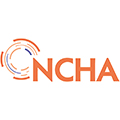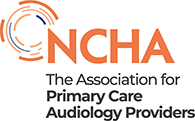19 February 2021
NCHA member update – 19 February
This week
- Vaccinations update
- Hearing care in UK and Ireland shows sign of recovery
- Study reveals hearing aids may protect against progression to dementia
- The World Report on Hearing - a new era for global hearing care
- Estimating the global cost of hearing loss
- NCHA change of address
Most audiology teams have now been offered a Covid-19 vaccination appointment.
Members in Northern Ireland, Scotland and Wales report they have overcome any initial teething problems and have contacted local vaccination programmes.
Unfortunately, there been some difficulties in certain Clinical Commissioning Group regions in England. Our 16 February update explained how audiology teams, as frontline healthcare workers, can book their vaccination appointments in England through the NHS Covid-19 Vaccination Booking Service. If this does not work, there is an option to call 199 free of charge, 7am to 11pm, seven days a week. This is open until 28 February.
You must continue to provide proof you are in this priority group.
Hearing care in UK and Ireland shows sign of recovery
The latest British Irish Hearing Instrument Manufacturers Association (BIHIMA) data shows that audiology services in the UK and Ireland started to recover in Q3 and Q4 of 2020.
The independent sector in the UK and Ireland had shown strong recovery signs in Q3 and maintained this in Q4. Over the year, the UK's independent sector was down by 18% compared to 2019, mainly caused by the lockdown in Q2. In Ireland, sales had reduced by 11% versus 2019.
NHS provision in the UK took until Q4 to recover, with significantly suppressed hearing aid sales during Q2 and Q3. However, the pandemic meant hearing aid provision had fallen by 40% on 2019.
Read more and access the full dataset.
Study reveals hearing aids may protect against progression to dementia
The RNID reports on a study that it says "shows that hearing aids may protect against the progression to dementia".
The charity said an "international team of scientists has found that people with mild cognitive impairment who use hearing aids have a significantly lower risk of developing dementia and experience a slower cognitive decline".
The RNID said it felt the research "could strengthen the case for introducing hearing screening within the NHS Health Check".
The actual study applied a statistical model to a sizeable referral-based cohort of 2,114 hearing-impaired patients obtained from the National Alzheimer's Coordinating Centre. Its statistical analysis showed that participants who used hearing aids were at significantly lower risk of developing all-cause dementia than those not using hearing aids. The researchers said, "the causality between hearing aid use and incident dementia should be further tested".
The World Report on Hearing - a new era for global hearing care
The International Journal of Audiology has written a feature ahead of the 3 March publication of the first World Health Organization World Report on Hearing (WRH).
The Journal reports that the WRH will be evidence-based and sets out an important "global agenda to bring ear and hearing care to the forefront of policymakers, public health officials and governments". It also sets out more detail on what each section of the WRH will include. Read more.
Estimating the global cost of hearing loss
An article in the International Journal of Audiology estimates that a 5% reduction in hearing loss prevalence would cut the total global economic costs of hearing loss by $49 billion.
Two authors from the LSE and one from the World Health Organization indicated the total global economic costs of hearing loss exceeded $981 billion in 2019. Nearly half of the costs related to quality of life losses, with 32% due to additional costs of poor health in people with hearing loss. 57% of costs were outside high-income countries, and 6.5% of costs were for children aged 0-14.
The authors concluded that "small reductions in prevalence and/or severity of hearing loss could avert substantial economic costs to society. These cost estimates can also be used to help in modelling the cost-effectiveness of interventions to prevent/tackle hearing loss and strengthen the case for investment".
The NCHA has moved its head office from Paddington to Euston. Our new address is NCHA, 16 Upper Woburn Place, London, WC1H 0BS. At this stage, due to the pandemic and travel restrictions, members are advised to continue sending correspondence by email to [email protected].

Press enquiries
Media enquiries should be directed to [email protected] or call 020 7298 5110.
We are happy to put you in touch with our expert policy advisers who can comment on a variety of issues.
You can also follow us on Twitter and LinkedIn.

 Your hearing and aural health
Your hearing and aural health  Commissioners and Policymakers
Commissioners and Policymakers  Member support and guidance
Member support and guidance News and views
News and views
 Hearing map
Hearing map
